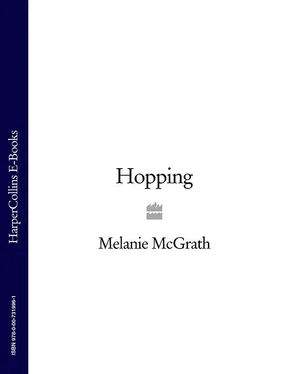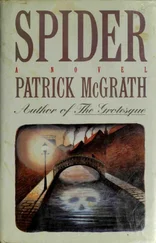The Apex, which took in sailors’ uniforms and the linen from several West End hotels as well as a hospital or two, was rather more up to date. It was situated in a once-red-brick, now blackened building which was part of a huddle of small factories and workshops just off the East India Dock Road. The laundry itself was divided into three principal rooms, each serving several functions. Of these, the washroom was the largest, containing vast copper cauldrons set on gas burners and a state-of-the-art Victress Vowel turner operated by levered wheels, with an area at one side devoted to stain removal and special treatments, and another at the back where the mangles and hanging racks stood. The washroom gave on to a separate ironing room. Beyond that lay the finishing and packing room.
The Apex Laundry hours were from 7 a.m. to 6 p.m. on weekdays and from 7 a.m. to noon on Saturdays. The pay was poor, six shillings a week for a junior girl, and there were no paid holidays or sickness benefits. The laundry seemed to run by a set of rules designed to transfer as much of the weekly wage as possible back to its owners. Any infraction of these rules – which Mrs Bentley was careful never fully to explain – resulted in a docking of the guilty party’s pay. Among the infractions included grating the soap too finely, or too thickly, using too much or too little, bleaching or starching any fabric not intended to be bleached or starched or in any other way damaging fabric or fixings, however inadvertently; insufficient mangling, sneezing or coughing on newly ironed laundry, failing to fold correctly, speaking when not required to speak or failing to speak when required to do so, illness, lateness and other assorted malfeasances as and when required.
When the laundry arrived at the Apex, it was first inspected then, if necessary, taken to the soaking and stain-removal area, where it was the responsibility of the stain workers to remove any marks on the fabric with hot flour and water or ground pipeclay, ashes or lime chloride, or salts of lemon and cream of tartar, depending on the stain. The stain-free laundry was then placed in hot water with shredded soap and soda in one of the cauldrons, and turned with a Victress Vowel operated by levered wheels. Every kind of fabric required a different treatment. Coloureds were set with salt and vinegar, prints soaked in liquor boiled from ivy leaves, and blue and black silk fixed with gin. After its wash, the laundry was lifted out with dolly sticks, and, in the case of linens, boiled, then rinsed three times, in warm, cool and blued water respectively, before being moved to the starching area, to be stiffened with rice flour or size made from boiled hoofs and glossed with borax. It was then mangled in huge, multiple-rollered mangles operated by a set of giant wheels and levers, and set on the drying racks. While still moist, linens were transferred to the ironing room, where they were ironed with turps, then polished with glass calenders on a hardboard, and, finally, sent to the packing room to be finished and folded and from there dispatched back to their owners.
Because her sister was a good worker, Lilly was assigned to the packing room, the least arduous area of the laundry, where she had only to fold sleeves and pin shirts and set fancy work in tissue before bundling each customer’s order together in brown paper and tying it up with string. Daisy, on the other hand, was put to the mangles. Her job was to fold the newly washed laundry, then feed it through the rollers, turning the levered wheels with one hand, using the other to catch the newly mangled fabric as it appeared at the other end, then transfer it to the drying racks. If the laundry was insufficiently mangled it would drip on to the floor and dry unevenly; if too dry, the ironing room would complain that it was unmanageable. It was, quite literally, grinding labour. At the end of each day, Daisy’s shoulders and elbows would throb from turning the wheels. After the first few weeks, the sensitive skin between her fingers opened up, leaving itchy wounds which never healed, then the skin on the back of her hands developed a bloom from exposure to carbolic and soda and the hands themselves throbbed from the constant damp. Several months in, the muscles in her mangling arm began to swell beneath taut, roped veins.
That’s more like an elephant’s trunk than an arm , Lilly said one day as they were sharing their midday sandwich. Careful, or they’ll think you’ve escaped from the circus or else … She whispered this with her hand to her mouth so that only Daisy could see…. or they’ll think you’re one of them.
Them were the nancy boys who hung around the docks at night dressed in women’s garb. Some worked as dockers by day and by night their thickly muscular bodies, granite legs and leather faces looked rather comical dressed in silk skirts and daubed with rouge and beauty powder. They were tolerated, even pandered to so long as they took in good part the jokes made against them, but you wouldn’t want to be mistaken for one of them, not for any amount of money, not even if you did have an elephant’s trunk for an arm.
Later Lilly apologised, pointing out that her own arms were none too clever, neither, so she had no right to pitch in on anyone else’s, and the two girls were as thick as any two girls can be once more.
It didn’t occur to Daisy to resent her friend for her easier lot, just as it didn’t occur to her to resent her sister for being pretty. Things were as things were. There was nothing to be done about any of it. In any case, Daisy quite liked her work. Her walk to and from the laundry took her past Charrington’s and the Anchor Brewery, from whose streaming chimneys forever came the delicious, bitter, spicy scent of hops. There was a certain satisfaction in turning the wheel and seeing wet, sloppy fabric emerge the other side flat, crisp and evenly moist, and the camaraderie between the laundresses made up in part for the laboriousness and monotony of mangle-turning. The East End was full of filthy work in glue factories, meat processing plants and paint and gas works. The laundry at least had the advantage of being clean.
More than anything, though, the twice-daily exposure to the smell of hops kept Daisy going, because it reminded her of the happiest times, during those weeks of late summer and autumn, she’d spent in Kent at the beginning of the war. She looked back on that period as a procession of brilliant, sun-drenched days, each bringing more happiness than the last, and she’d returned to Poplar with a new and uncomfortable perspective on her home patch. The crush of people, which had once seemed so comforting, now grated, and the speed of everything made her anxious. She started to feel penned in and longed to see the thin turban-blue stripe of the sea once more. But she knew that until Franny had left school and was bringing in a wage and could be trusted to look after their father, she would not be returning to Kent.
It pleased her to be able to make a difference to the family economy, though, and by the early 1920s, the Crommelins were once more on an even keel financially, and Daisy was even able to save a shilling or two for entertainments for herself and her sister.
From the mid-1920s, picture houses sprang up across the East End as fast as dandelions through paving stones. By the early 1930s, there were eight around Poplar alone, among the largest of which were the Pavilion, the Hippodrome, the Grand and the Gaiety, each capable of seating thousands. The Troxy, which opened in the early 1930s, seated 3,500 alone. For a while they competed furiously for custom, each decorating its foyer and viewing room more elaborately than the next, with velveteen, crystal chandeliers and gilded gesso. The sisters loved them, but Franny found their blend of magic and luxury particularly enchanting and would have happily spent every waking minute in one or other picture house had she not had school to attend and a concerned older sister to make sure she went. The picture houses soon became a major part of the sisters’ weekend routine. Every Saturday morning after her shift at the laundry, Daisy would walk to Chrisp Street to wait for her sister to emerge from the morning children’s show; the two girls would go and do their shopping in the market and as they made their way home Franny would entertain Daisy with descriptions of what she’d seen. In the afternoon they’d head for the matinee at the Gaiety or the Hippodrome and they’d walk home with heads full of stars and stories.
Читать дальше












